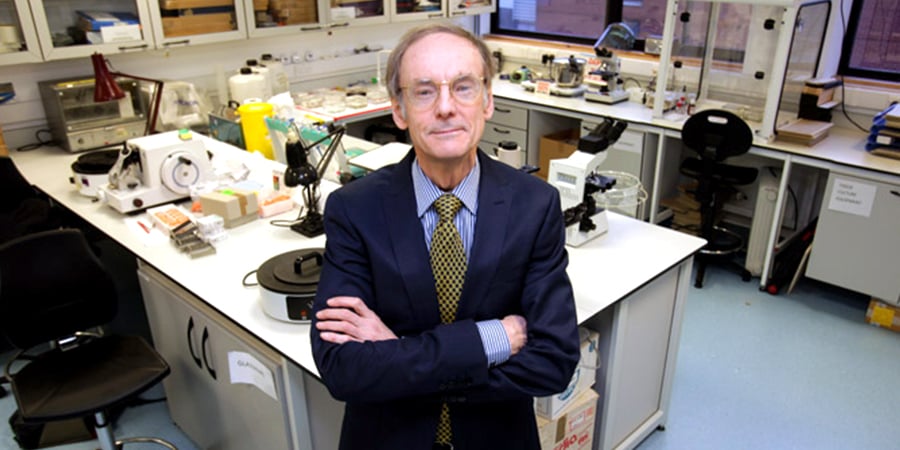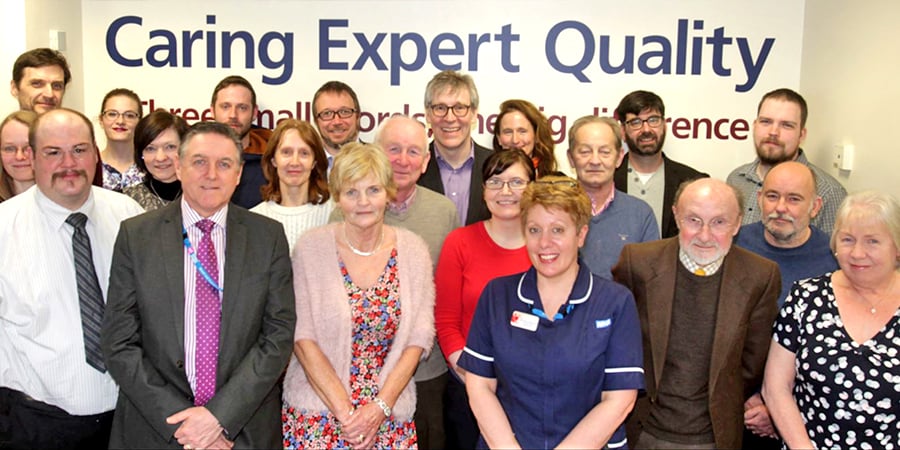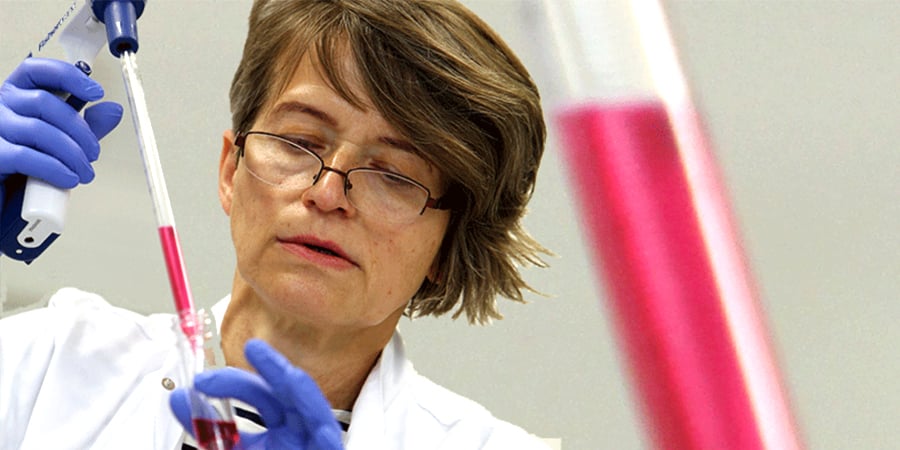
On World Diabetes Day take a look at just some of the ways our world-leading researchers are tackling diabetes...
Reversing Type 2 Diabetes

Having spent almost four decades studying the condition, in 2017 Professor Roy Taylor’s research was able to show that Type 2 diabetes is caused by excess fat within the liver and pancreas.
By testing patients with a low-calorie diet, Professor Taylor was able to confirm the underlying causes of the condition and establish that it is reversible, with reversal possible for at least ten years after the onset of the condition.
‘By studying the underlying mechanisms, we have been able to demonstrate the simplicity of Type 2 diabetes’ Professor Roy Taylor
In 2018, a landmark trial of Professor Taylor’s research revealed further important insights into exactly how weight loss can put Type 2 diabetes into remission. The findings added evidence to the theory that shedding liver and pancreas fat is a vital component of reversing Type 2 diabetes.
This year, it was announced that the NHS will be providing the low-calorie diet to up to 5,000 patients in England in a drive to increase access to the life-changing weight-loss programme, based on research by Professor Roy Taylor. The study has the potential to transform the lives of millions of people.
‘The launch of the NHS England programme to reverse Type 2 diabetes is an exciting moment. It is the practical outcome of a 12 year series of Newcastle research studies.’ Professor Roy Taylor
Investigating Cystic Fibrosis-related Diabetes (CFRD)

Approximately 50% of adults living with cystic fibrosis have diabetes. In 2016, our experts took the lead on an international study to investigate the genetic defects responsible for this devastating disease.
Discovering more about how defective genes in patients with CFRD affect the body’s ability to regulate insulin levels will help researchers work out how to prevent diabetes from developing. The study, led by Professor James Shaw, has the potential to identify new treatment options that could enable the majority of cystic fibrosis patients to live longer lives.
‘Our research has the potential to identify new treatment options that could enable the majority of CF patients to live longer and healthier lives.’ Professor James Shaw
The £750,000 study, funded by the Cystic Fibrosis Trust, ran for three years. Learn more about this study here.
Newcastle Isolation and Innovation Hub

Our unique Newcastle Isolation and Innovation Hub, launched in 2017, is the first of its kind in the UK. The laboratory focuses on developing cell transplantation and testing new drugs that will hopefully one day lead to a Type 1 diabetes cure.
‘Our research and clinical practice has been building towards this service for the last 15 years which will benefit scientists working towards a cure throughout the UK and the rest of the world.’ Professor James Shaw
The facility provides our scientists with human islet cells - found in the pancreas and which release insulin - to further their research. This vital research could one day mean insulin won’t be required for any type of diabetes.
Preventing Heart Disease

In 2018, Dr Jolanta Weaver from our Faculty of Medical Sciences led a clinical trial which revealed a new way to prevent heart disease in Type 1 diabetes.
An inexpensive drug, often used to treat Type 2 diabetes, was found to have the potential to prevent heart disease in patients with Type 1. By promoting a patient’s ability to repair their own damaged blood vessels, the treatment was able to increase the growth of blood vessels and improve glucose levels.
‘This is an exciting development as understanding this underlying mechanism opens up the possibility of new forms of treatment.’ Dr Jolanta Weaver, Senior Lecturer in Diabetes Medicine at Newcastle University
As the drug is not regularly given to patients with Type 1 diabetes, these findings from our researchers could lead to new treatments in the future.
Changing Health

Additionally, our spin out health technology company Changing Health provides digital services aimed at people suffering from, or at risk of, Type 2 diabetes.
By using behavioural psychology to address unhealthy diet and exercise habits and encourage more positive choices, alongside pioneering AI technology to provide each individual with unique support, Changing Health has shown that Type 2 diabetes can be put into remission in as little as 12 weeks.
‘Changing Health’s solution – combining new technology and behavioural change expertise – is already transforming people’s lives.’
Professor Michael Trenell, Professor of Metabolism & Lifestyle Medicine and Changing Health Co-founder
This year, having gone from strength to strength since launching in 2016, Changing Health are now up-sizing to take space in The Catalyst.
You might also be interested in
- Newcastle University - Our Strengths - Ageing and Health
- Our Faculty of Medical Sciences Research Themes
- The digital future of healthcare - our Health Informatics training for healthcare professionals
